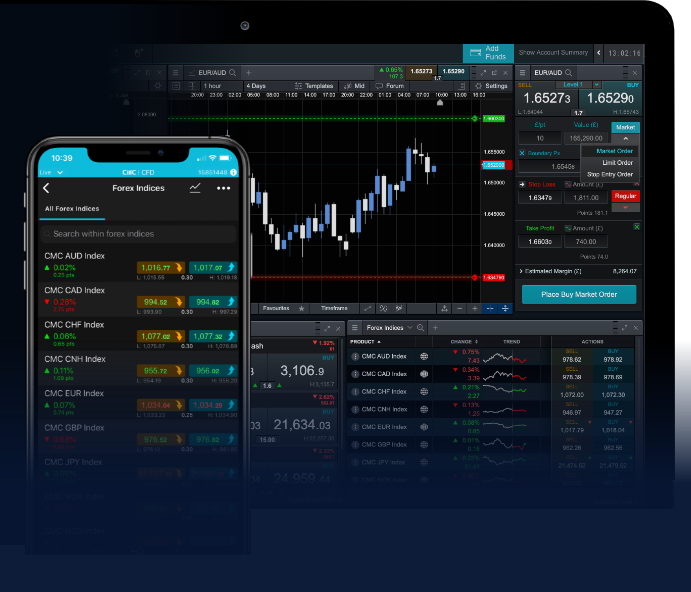
A Comprehensive Guide for Forex Trading Beginners
Forex trading can be an exciting yet daunting journey for beginners. With the right knowledge and guidance, anyone can learn the essentials of trading in the foreign exchange market. In this article, we will explore what Forex trading is, how to start, the key concepts you should understand, and tips to become a successful trader. For further resources, you can also check out forex trading beginners https://trading-bd.com/.
What is Forex Trading?
Forex, or foreign exchange, is the largest financial market in the world, where currencies are traded. The Forex market operates 24 hours a day, five days a week, allowing traders to buy and sell currencies from anywhere in the world. Unlike stocks or commodities, Forex trading involves the simultaneous buying of one currency and selling of another, which is why currency pairs are used to quote prices.
Understanding Currency Pairs
In Forex trading, currencies are traded in pairs, and each pair consists of a base currency and a quote currency. The base currency is the first currency listed in the pair, while the quote currency indicates how much of the quote currency is needed to purchase one unit of the base currency. For example, in the currency pair EUR/USD, the Euro (EUR) is the base currency, and the US dollar (USD) is the quote currency.
Getting Started with Forex Trading
To begin your Forex trading journey, you need to follow these steps:
- Educate Yourself: The first step is to learn the basics of Forex trading, including financial terminologies, market dynamics, and various trading strategies. Online resources, such as webinars, e-books, and courses, can be very beneficial.
- Choose a Reliable Forex Broker: Select a broker that aligns with your trading needs. Look for factors such as regulation, trading platforms, fees, and customer support.
- Create a Trading Account: After selecting a broker, you will need to open a trading account. Most brokers offer demo accounts, allowing you to practice trading without risking real money.
- Analyze the Market: Use technical and fundamental analysis to understand market trends and make informed trading decisions. Technical analysis involves analyzing charts and indicators, while fundamental analysis considers economic news and reports.
- Develop a Trading Plan: A trading plan outlines your goals, risk tolerance, and strategies for trading. It’s important to stick to your plan and not let emotions dictate your trading decisions.
- Start Trading: Once you feel confident in your knowledge and have a solid trading plan, you can start trading on a live account. Begin with small amounts to manage risk effectively.
Key Concepts Every Beginner Should Know

Several fundamental concepts and terminologies are crucial for beginners to understand:
- Leverage: This allows traders to control a larger position with a smaller amount of capital. While leverage can amplify profits, it also increases the risk of losses.
- Margin: This is the amount of money required to open a position. It’s essential to maintain a sufficient margin to avoid margin calls.
- Bid and Ask Price: The bid price is the price at which you can sell a currency pair, while the ask price is the price at which you can buy. The difference between these two prices is known as the spread.
- Pips: A pip is the smallest price movement in a currency pair. Understanding pips is crucial for measuring profit and loss.
- Stop-Loss and Take-Profit Orders: These are orders placed to automatically close a trade at a specific price to limit losses or secure profits.
Common Forex Trading Strategies for Beginners
As a beginner, you may want to explore various trading strategies to find what works best for you. Here are a few popular ones:
- Scalping: This strategy involves making quick trades to capitalize on small price movements. Scalpers typically hold positions for a few seconds to a few minutes.
- Day Trading: Day traders open and close positions within the same day, avoiding overnight risks. This strategy requires constant market monitoring.
- Swing Trading: Swing traders hold positions for several days to capture larger price movements. This strategy is ideal for those who cannot devote all their time to trading.
- Position Trading: Position traders take a long-term approach, holding trades for weeks or months. This strategy relies on fundamental analysis and broader market trends.
Tips for Successful Forex Trading
Here are some invaluable tips to help you succeed in Forex trading:
- Have Realistic Expectations: Understand that losses are a part of the trading process. Set realistic goals based on achievable returns.
- Practice with a Demo Account: Before trading with real money, practice on a demo account. This will help you familiarize yourself with the trading platform and refine your strategies.
- Manage Your Risk: Always use risk management tools such as stop-loss orders to protect your capital. Never risk more than you can afford to lose.
- Stay Informed: Keep up with global economic news and reports that may affect currency prices. Awareness of market sentiments can influence your trading decisions.
- Keep a Trading Journal: Document your trades, including the rationale behind your decisions. Analyzing your performance can help you identify strengths and areas for improvement.
Conclusion
Forex trading offers numerous opportunities for individuals looking to increase their financial knowledge and gain potential returns. While it can be intimidating at first, by educating yourself and practicing the strategies outlined in this guide, you can create a solid foundation for your trading career. Remember, patience, discipline, and continuous learning are essential components for long-term success in the Forex market. As you continue your journey, never hesitate to seek additional resources and community support.
Happy trading!
